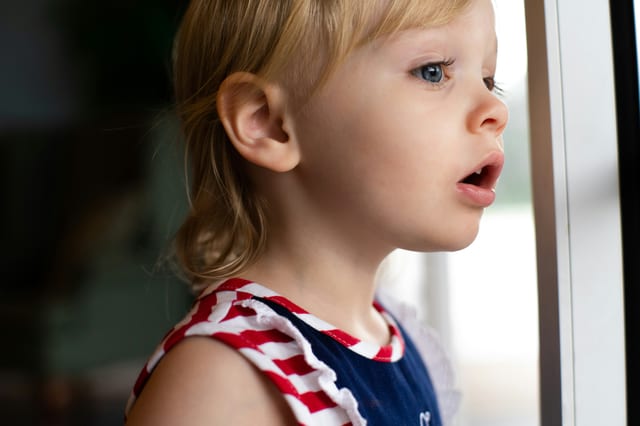As parents, we watch our children’s every milestone with joy and sometimes concern – from their first smile to their first steps. At The Audiology Place, we often meet parents wondering about their child’s hearing development. Let’s explore what’s expected, what to watch for, and when to seek professional help.
Why hearing matters – good hearing is crucial for your child’s development. Any disruption to auditory signals can affect:
- Speech and language development
- Social interactions
- Learning abilities
- Emotional well-being
- Academic success
Typical hearing milestones by age
Birth to 3 months – your newborn should:
- Startle or jump at sudden loud noises
- Wake up or stir at loud sounds
- Make soft sounds when awake.
Red flags:
- No reaction to loud sounds
- They don’t seem to notice your voice
4 to 6 months – your infant should:
- Turns head toward interesting sounds
- Responds to changes in your tone of voice
- Notices toys that make sounds
- Begin to make speech-like babbling sounds.
Red flags:
- They don’t turn toward sound sources
- Makes few or no sounds

7 to 12 moths – your baby should:
- Understand common words like “no” and “bye-bye”
- Turn and look when you call their name
- Babble with a variety of sounds
- Begin to imitate simple words.
Concerning signs:
- They don’t respond to their name
- Not babbling
- Shows no interest in interactive games like peek-a-boo
1 to 2 years – expected developments:
- Follows simple directions
- Uses 10-20 words by 18 months
- Points to body parts when asked
- Enjoys being read to
Red flags:
- Limited vocabulary growth
- Doesn’t follow simple commands
- They prefers gestures over vocalization
2 to 3 years – your toddler should:
- Use 50+ recognisable words
- Put two words together
- Follow two-step instructions
- Begin to understand spatial concepts (in, on, under).
Watch for:
- Speech that’s difficult to understand
- Frustration when communicating
- Limited interaction with other children
Factors That May Affect Hearing Development
Some children may be at higher risk for hearing issues if they:
- Were born prematurely
- Have a family history of hearing loss
- Had frequent ear infections
- Were exposed to deafening noises
- Had certain illnesses or medications
When to Seek Professional Help
Contact us at The Audiology Place if you notice:
- Your child is not meeting several milestones
- Delayed speech development
- Frequent ear pulling or rubbing
- Speaking unusually loud or soft
- Requiring frequent repetition
- Watching TV at very high volumes
How we can help at The Audiology Place: we specialise in pediatric hearing assessments. Our child-friendly clinic in Forestville offers:
- Comprehensive hearing evaluations
- Age-appropriate testing methods
- Detailed explanations of results
- Practical support and guidance
- Ongoing monitoring, if needed
Did You Know?
- Early intervention is critical – the earlier hearing issues are identified, the better the outcomes
- Many children experience temporary hearing loss due to ear infections
- Regular hearing checks are as necessary as other health check-ups
Making testing fun at The Audiology Place – we understand that children are only sometimes keen on medical appointments. That’s why our testing environment is designed to be welcoming and enjoyable. Dr. Signe Steers and our team have years of experience making hearing tests feel like play rather than a medical procedure.




